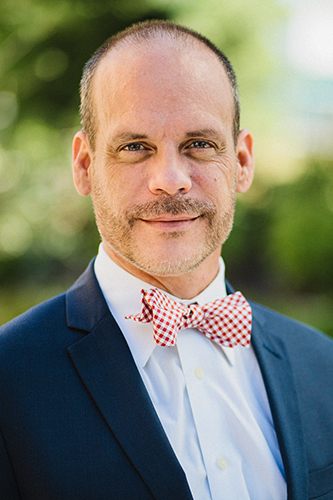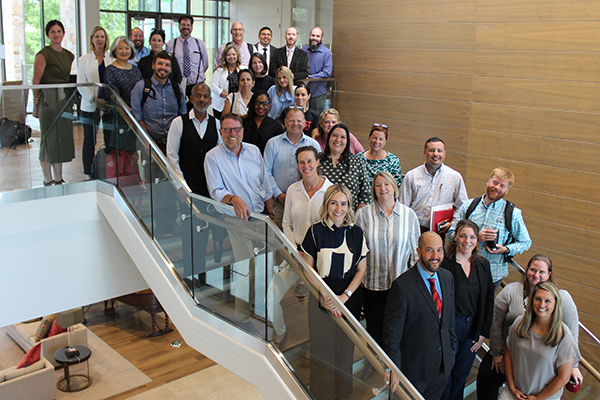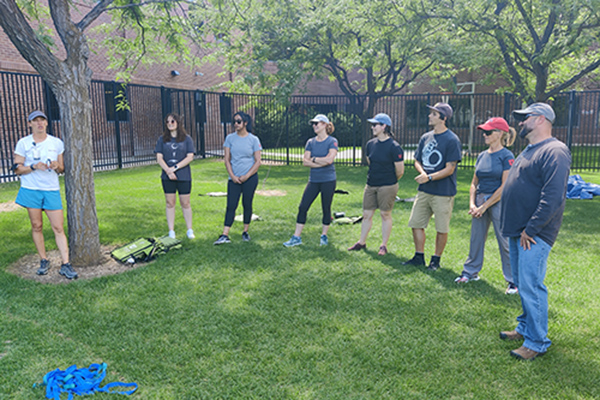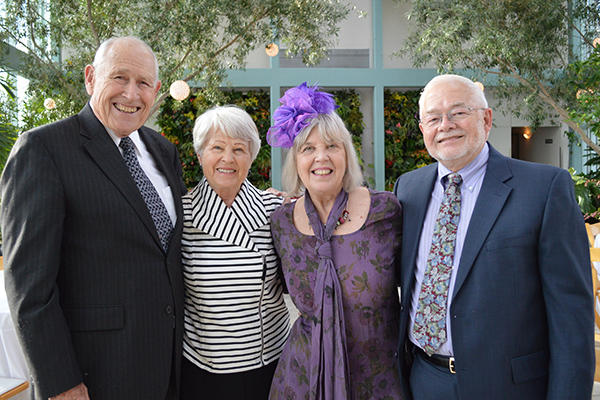About the College of Social Work
CSW Mission Statement
The College of Social Work is dedicated to educating and training students, conducting transformational research, and engaging with communities to promote social justice and enhance well-being.
College Community
The University of Utah College of Social Work, established in 1937, is a leader in
social work education in the Intermountain West. The College offers students a welcoming
and challenging learning environment where students are encouraged to collaborate
with faculty, peers, and community partners in analyzing and resolving critical social
problems.
Core Competencies & Accreditation
The University of Utah baccalaureate and master’s programs are accredited by the Council on Social Work Education (CSWE). Accreditation represents a framework for ensuring educational institutions meet established performance, integrity, and quality standards. Our BSW and MSW programs adopt a competency-based approach based on the 2022 Educational Policy Accreditation Standards (EPAS) established by CSWE. The competencies required for accreditation are:
- Competency 1: Demonstrate Ethical and Professional Behavior
- Competency 2: Advance Human Rights and Social, Racial, Economic, and Environmental Justice
- Competency 3: Engage Anti-Racism, Diversity, Equity, and Inclusion (ADEI) in Practice
- Competency 4: Engage in Practice-informed Research and Research-informed Practice
- Competency 5: Engage in Policy Practice
- Competency 6: Engage with Individuals, Families, Groups, Organizations, and Communities
- Competency 7: Assess Individuals, Families, Groups, Organizations, and Communities
- Competency 8: Intervene with Individuals, Families, Groups, Organizations, and Communities
- Competency 9: Evaluate Practice with Individuals, Families, Groups, Organizations, and Communities
Land Acknowledgement
The University of Utah has both historical and contemporary relationships with Indigenous
Peoples. Given that the Salt Lake Valley has always been a gathering place for Indigenous
Peoples, we acknowledge that this land, which is named for the Ute Tribe, is the traditional
and ancestral homelands of the Shoshone, Paiute, Goshute, and Ute Tribes and is a
crossroad for Indigenous Peoples. The University of Utah recognizes the enduring relationships
between many Indigenous Peoples and their traditional homelands. We are grateful for
the territory upon which we gather today; we respect Utah’s Indigenous Peoples, the
original stewards of this land; and we value the sovereign relationships that exist
between tribal governments, state governments, and the federal government. Today,
approximately 60,000 American Indian and Alaska Native peoples live in Utah. As a
state institution, the University of Utah is committed to serving Native communities
throughout Utah in partnership with Native Nations and our Urban Indian communities
through research, education, and community outreach activities.
Message From the Dean

Social change happens in many different ways, but regardless of how we show up and contribute, we all have a role to play. In this moment, the University of Utah College of Social Work’s role is to lean in and lead out.
In recent months, we’ve thoughtfully engaged in strategic, mission-aligned planning to ensure that every decision we make supports our students, our communities, and our profession. We surveyed and spoke with hundreds of stakeholders—students, alumni, employees, community partners, and more. With their input and guidance, we carefully crafted a strategic plan that enables us to reimagine ourselves for the future.
We are hiring faculty to help support additional growth in both our online and grounded programs. We are expanding our clinical training programs and incorporating additional elements into our curriculum to help our students graduate career-ready. We are developing new pathways and opportunities to address the nation’s critical shortage of qualified behavioral health professionals. And, thanks to the generous investment of our donors, our students are bolstered by a record amount of scholarship dollars, enabling them to graduate on schedule.
Throughout the U.S., new training methods developed by our research centers are helping child welfare workers and criminal justice professionals develop specialized skills more quickly and more effectively. Our current faculty have published more than 1,000 scholarly articles, generating and sharing knowledge with colleagues across the globe. We are also working to make our research more accessible to practitioners, providing continuing education opportunities that help social workers maintain their licensure while advancing their evidence-based practice.
While the social impact of our work might seem impossible to truly quantify, through
our students and our graduates, our research, and our service, our actions reach across
states, beyond oceans, and throughout the human services professions. We will continue
to innovate and engage, and we invite you to join us.
Philip Osteen, PhD, MSW
Dean, College of Social Work
Chief Behavioral Health Officer, University of Utah
Leaders in Social Justice and Behavioral Health
The College of Social Work develops social work leaders to promote social justice
and behavioral health in all communities. Health and justice includes sociocultural,
economic, sovereign nation, psychological, spiritual, environmental, political, and
biological dimensions. To achieve these aims, we provide rigorous education with a
focus on people from all backgrounds and vulnerable populations, social justice initiatives,
and interdisciplinary collaboration. We collaborate with community partners to develop,
implement, optimize, and evaluate evidence-based approaches to practice and policy.
Our students study and apply critically-appraised research, theories of practice,
behavioral health interventions, models of community practice, innovative research
methods, and policy analyses that prepare them to lead locally and globally. Our faculty
and research staff engage in a research-to-practice model integrating advances in
service delivery informed by translational research. Through federal, state, and foundation
grant funding, the College’s research activities produce and disseminate knowledge
to improve individual and societal well-being.
Computer Lab
Fall and Spring Schedule
Monday - Thursday: 8 A.M. – 7 P.M.
Friday: 8 A.M. – 5 P.M.
Closed: Saturday and Sunday
Classes in the lab
The lab is also unavailable to all students when classes are being held. Postings
will be made prior to classes.
Holiday Break Hours
Hours: 8 A.M. – 4 P.M.
Closed: Saturday and Sunday
The Computer Lab will be closed on all University of Utah holidays and university
closure days.
Lab Rules & Policies
- The lab adheres to the University’s Acceptable Use Policy – PLEASE READ!!!
- Absolutely No Food and/or Drink in the Lab
- DO NOT INSTALL any programs, games, or chat/messaging software.
- If you have questions reguarding email, please click here: University Email and Web Information
If there are any questions regarding these rules and policies please ask the Lab Manager or a Lab Assistant or email: Lab Manager
Contact Us
If you are not sure who to contact, please call or visit our main office for assistance.
Main Office
801-581-6192, Room 101
Dean’s Office
801-581-8827, Room 107
Computer Lab Tech Assistance
801-585-3703, Rooms 211 & 212
BSW & MSW Offices
801-581-8053, Suite 331
PhD Office
801-585-5979, Room 214

 Faculty
Faculty Staff
Staff Emeriti Faculty
Emeriti Faculty